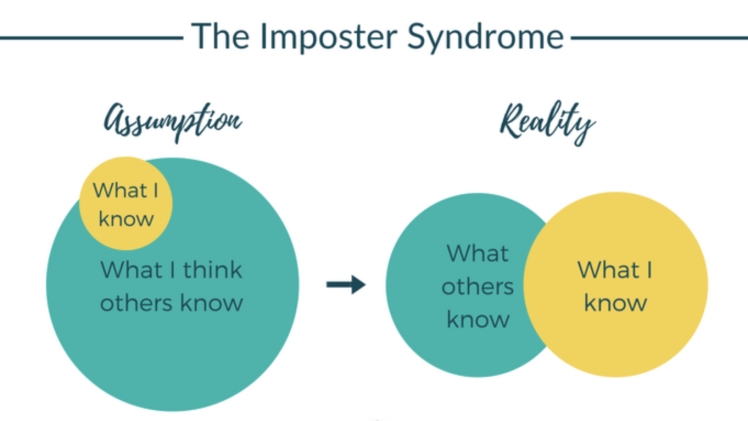Impostor syndrome, or in other words the impostor phenomenon, is the lack of ability to appropriate personal achievement and the constant fear of being exposed as “cheating”. The term was first used in 1978 by psychologists Pauline R. Klens and Suzanne A. Eames.
People with impostor syndrome reject success and explain it away as luck, the right moment or the result of deceiving others by believing they are smarter and more competent than they really are.
Understanding imposter syndrome
Impostor syndrome is common among excellent students or people with high levels of stress. People with impostor syndrome firmly believe that they are not intelligent and deceive anyone who thinks otherwise. Impostor syndrome has been recognized by psychologists as a particular form of intellectual insecurity.
Pauline Clance developed the Clance IP scale to help people determine if their feelings are related to imposter syndrome. The Clance IP scale assesses 20 questions on a five-point scale. Here are some of them:
- I often managed to pass a test or assignment, even though I feared I would fail before I started the task.
- I can give the impression that I am more competent than I really am.
- Sometimes I think I got my current position or reached my current successful position because I was in the right place at the right time or knew the right people.
- When people praise me for the results I have achieved, I fear that I will not be able to meet their expectations in the future.
Impact of imposter syndrome
Imposter syndrome can have negative effects on a person. Thus, the risks of people suffering from impostor syndrome are presented below:
1. Imposter syndrome can hinder career advancement.
People with imposter syndrome are hesitant to consider applying for their desired position out of fear that they are not fit enough for the job.
2. Impostor syndrome interferes with the manifestation of leadership qualities.
Impostor syndrome is common among otlichniki – they do not spare themselves and are the strictest critics for themselves. Consequently, it affects their leadership development as they try to go with the flow for fear of being exposed as “cheaters”.
3. Impostor syndrome instills insecurity.
People suffering from impostor syndrome downplay their achievements. This instills a lack of confidence in their own abilities and reinforces the belief that their accomplishments are the result of fortunate coincidence.
Techniques for dealing with imposter syndrome
Below are ways to deal with imposter syndrome:
1. Accept uncertainty.
Avoid “what-if” situations and focus only on the present.
2. Stop striving for perfection.
Perfectionism and striving to be perfect causes unnecessary stress and anxiety. Recognise that nothing and no one is perfect and that problems will inevitably arise.
3. Accept help from others.
Chances are good that the people around you also feel like impostors. Seek help, discuss your feelings with your loved ones, and realize that you are not the only person with these feelings.
4. Listen to and accept compliments.
Don’t get hung up on negative feedback, accept positive feedback and compliments from others.
5. Don’t associate success with luck.
Attributing success to chance has a negative impact on your capabilities and approach to life. Recognise your success and take responsibility for your achievements. To track your results use time tracking and billing software
6. Believe that you are unique.
Don’t compare yourself to others, respect your choices and understand that you are just you.
Imposter syndrome cannot be completely eliminated, but there are ways to minimize the feeling.
Examples of imposter syndrome
Below are examples of the feelings and reactions of people with impostor syndrome:
- Georgy, 18, graduated from high school with honors and enrolled at MSU. Georgy is frightened and convinced that the admissions committee at MSU made a mistake and that he does not deserve to be admitted to the prestigious university.
- Alexandra, one of the leading specialists in corporate finance and often attends conferences and seminars held around the world. Recently Alexandra attended a major conference. During her acquaintance Alexandra noticed other successful specialists. Despite the fact that she is a well-known specialist in her field, she feels out of place and believes that others may call her a fraud. You can visit this site to know about Ask Reader.
- Mikhail recently landed a job as an analyst at a financial services company. Over the past few months, Mikhail has received favorable feedback from executive partners and the CEO. In fact, Mikhail recently received a bonus for helping to lead a cross-border M&A transaction. When colleagues ask him about his success at the company, Mikhail attributes it to a lucky set of circumstances.

